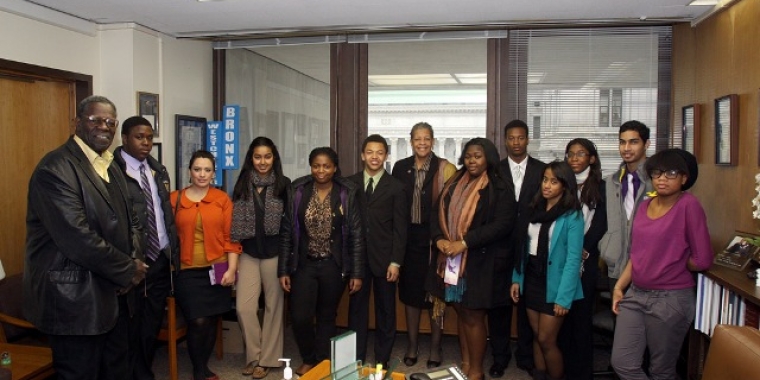
Low and Middle Income New Yorkers are Hurt the Most by Budget Cuts
Ruth Hassell-Thompson
April 1, 2011
-
ISSUE:
- Budget
New York is on a dangerous path of pricing out our low-income and middle-income New Yorkers. The Executive and Senate Republican’s trickle down approach to right-sizing our economy will hit our working and middle class families, our children and seniors the hardest. Further, the refusal to include the Emergency Tenant Protection Act (ETPA) in the budget coupled with the drastic reduction of the Advantage Rental Assistance program, and shrinking public services is a direct assault on our most vulnerable citizens. The budget was an appropriate time to consider extending the ETPA, considering the unintended consequences to our human and social service caseloads when suddenly over one-million New Yorkers will find themselves priced out of their homes.
The Senate Majority pushed for an on-time state budget this year for the sake of headlines, instead of being concerned about the impact of the SFY 2011-12 budget on working New Yorkers. Certainly, the budget contains many commendable aspects such as the restorations to Title XX funding for senior centers, juvenile justice reform, restorations to 4201 schools, restoration of the Summer Youth Employment Program (SYEP) and summer schools, and restorations of SUNY and CUNY equal opportunity programs.
Despite the accomplishments in this budget, there should be great concern about the vagueness of some components of the spending plan. In many instances such as the case of the prison closures, health care recommendations by the Medicaid Redesign Team (MRT), or implementation of the Regional Councils, the Article VII language is such that unilateral decisions may be made by the Governor or agency heads – an extreme ceding of legislative authority. Prisons must close, but all stakeholders should be involved in the decision making process. We must also be responsive to the economic development needs of the impacted communities.
Proponents of this budget continue to insist that the state’s fiscal woes can be ameliorated with no new taxes, and as a result the Senate Republican Majority partnering with the Executive chose to balance this budget on the backs of our children and our most needy citizens. The only tax that they saw fit to restore from last year’s budget was the MTA payroll tax which impacts working New Yorkers downstate. As a result of the expiration of the “millionaires-tax” at the end of the 2011 calendar year, the state will lose $1 billion in revenue this year and $4 billion per year in subsequent years. The claim that New York consistently overspends is not without merit, but sacrifice must be shared, individuals making $1 million dollars or more should not be taxed at the same rate (6.85%) as an individual making $20,000.
Communities of color cannot sustain the massive cuts to human services, education and health care. This budget will result in layoffs of public employees at the state and local level, causing further reductions to services and placing our communities’ health at peril. The reductions to education are contrary to the Campaign for Fiscal Equity (CFE) agreement. Cities such as Yonkers and Mount Vernon will see the achievement gap continue to widen, teachers will be laid off, and programs and extracurricular activities will be reduced. We wonder what the impact of the education reductions will be in combination with the 2% proposed property tax relief plan.
The Executive and the Senate Republicans have set as priorities thus far this legislative session include; a 2% property tax cap, UB 2020, prison closures and an unfair restoration of education funds to Upstate and Long Island. No credence has been paid to issues that largely impact communities of color such as legislative redistricting, extension and expansion of the ETPA, restoration of New York City’s local aid, and restoration of deep and painful cuts to CUNY.
There are some good aspects to this budget, but for all of the good it does there are an equal number of concerns. This budget violates the commitment to CFE, unnecessarily stifling our ability to educate our children. New Yorkers overwhelmingly favored a true "millionaires tax" and opposed major cuts to healthcare, education and essential services. What they got instead, was deep cuts to services that are necessary to recover from the economic recession. We know that the Governor is widely popular in the polls. The only policy issue that is as popular as the Governor is the "millionaires tax”.
Share this Article or Press Release
Newsroom
Go to NewsroomSenator Ruth Hassell-Thompson Calls For Minimum Wage Increase
February 28, 2013
Senator Ruth Hassell-Thompson Calls For Minimum Wage Increase
February 28, 2013
